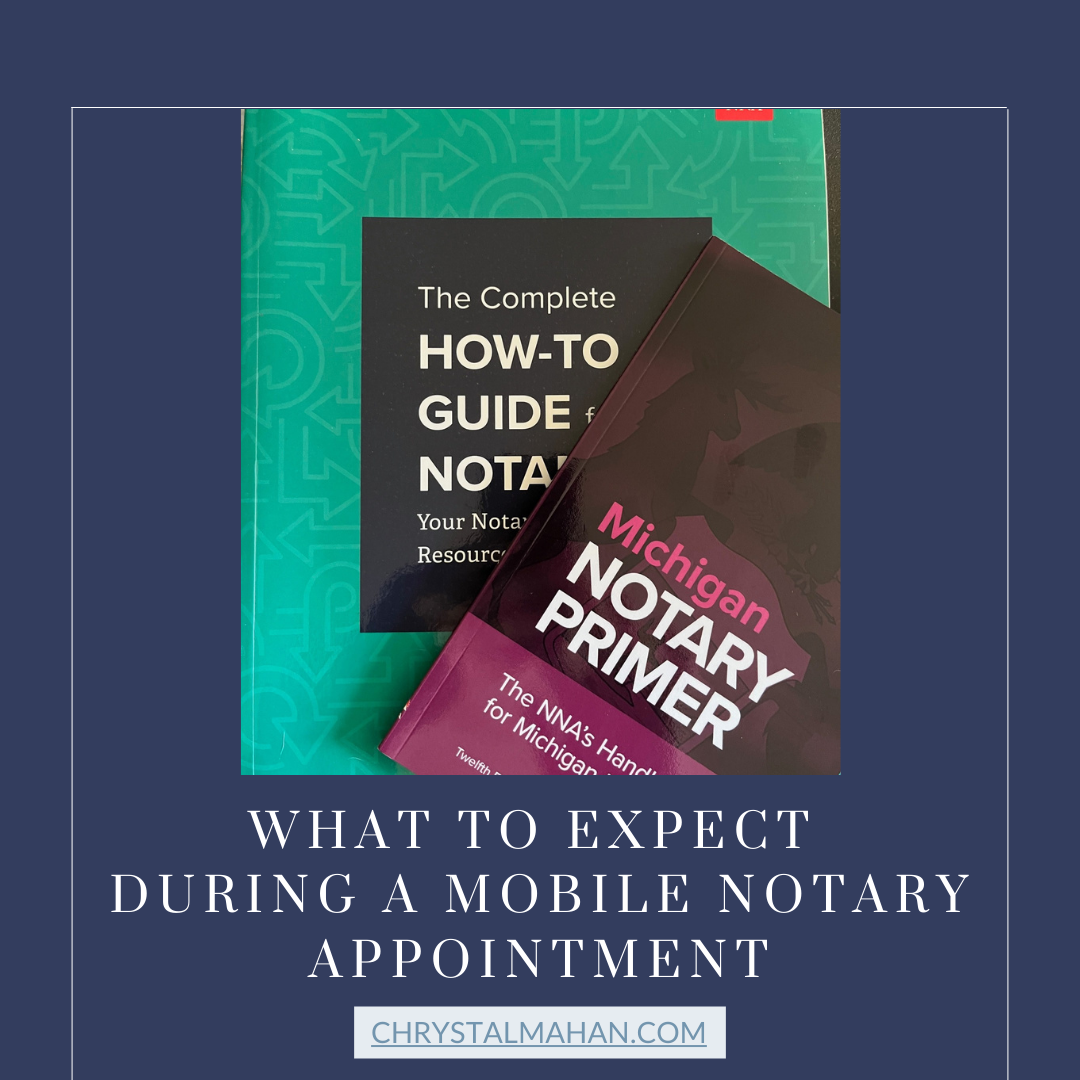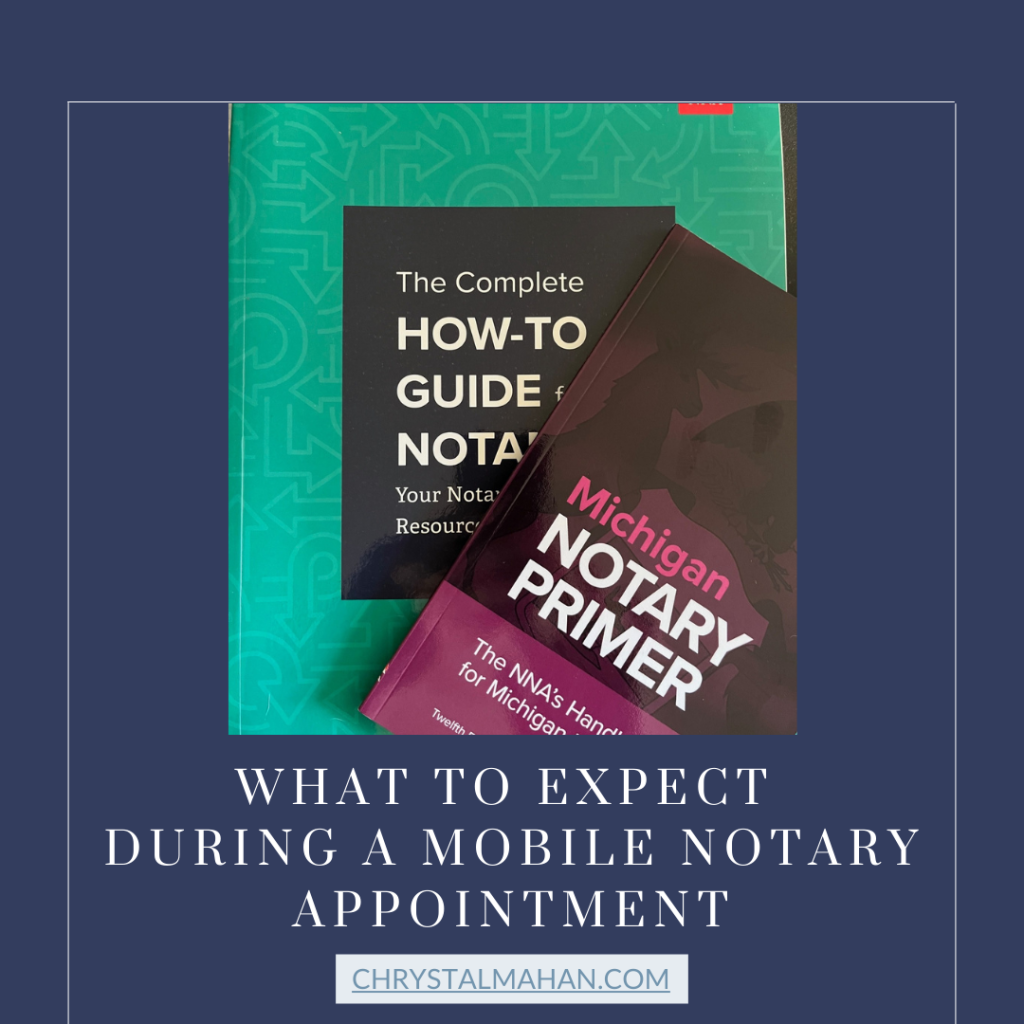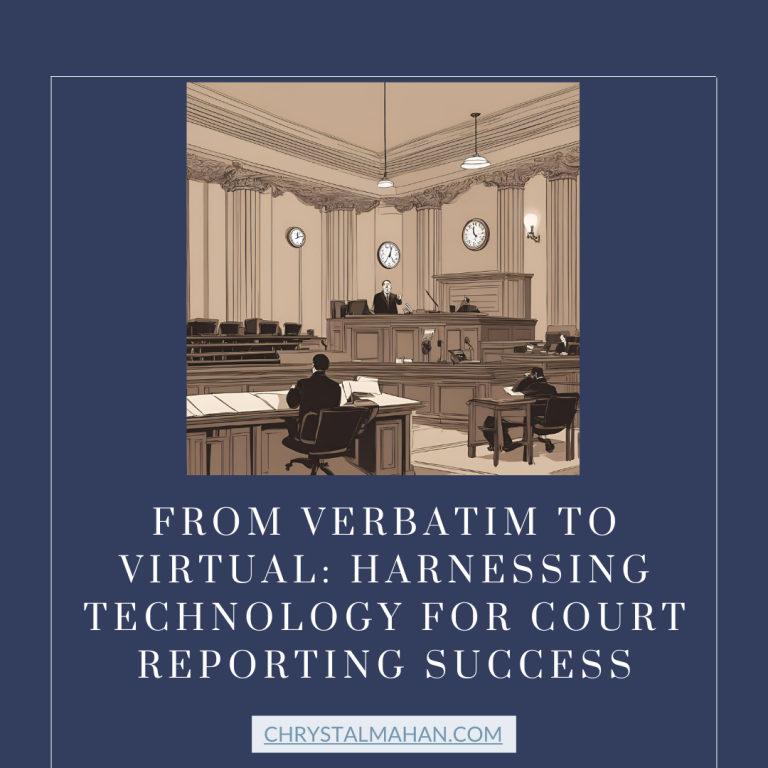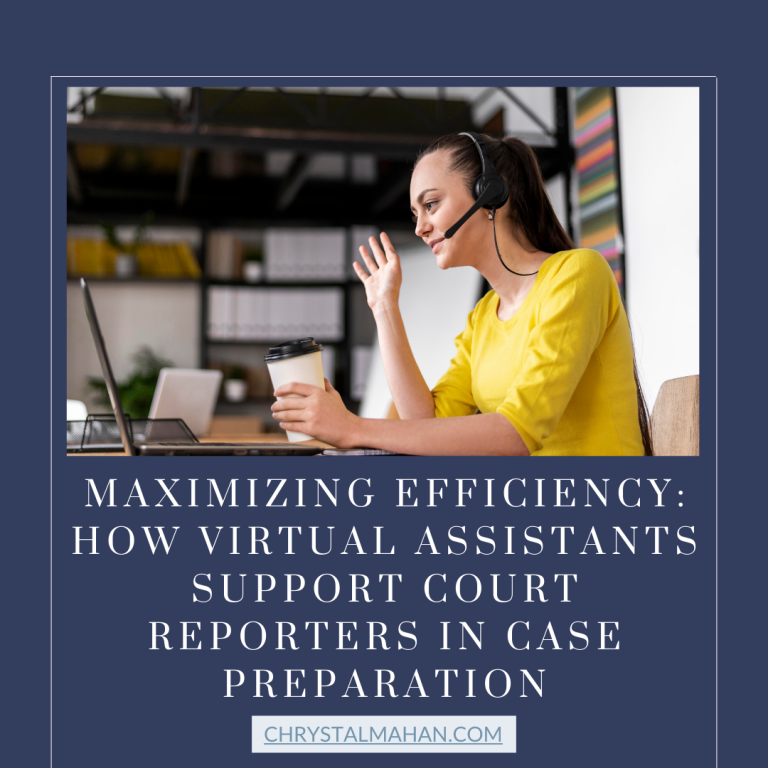What to Expect During a Mobile Notary Appointment


In the fast-paced world we live in today, convenience is everything. Whether it’s ordering groceries with a click or signing legal documents from your home, people crave services that fit into their busy lives. One such service that’s gaining popularity is mobile notary appointments. Instead of traveling to a notary’s office, the notary comes to you—at your home, office, or a coffee shop. Yet, for many, the process can feel unfamiliar and daunting. What should you expect when scheduling and attending a mobile notary appointment?
Imagine you’ve just closed on your dream home, but instead of rushing to an office across town for a quick signature, the notary comes to you. You can finalize everything from the comfort of your living room to grabbing your favorite coffee. Having a notary meet you where and when it’s convenient saves time and adds a layer of comfort to an already busy day. But how do you ensure the appointment goes smoothly? What are the key steps involved?
If you’re wondering what the mobile notary process looks like, you’re in the right place. In this guide, I’ll walk you through everything you need to know about what to expect during a mobile notary appointment. Whether you’re preparing for a real estate closing, finalizing legal documents, or completing any notarization, you’ll leave with peace of mind knowing exactly how to prepare. Let’s dive in and simplify the process!
The Basics of Mobile Notary Services
Before diving into the details, it’s important to understand the basic function of a mobile notary. A mobile notary is a certified public officer who verifies signers’ identities and ensures that legal documents are signed willingly and properly. Unlike traditional notaries who work from a fixed office location, mobile notaries travel to meet clients at their preferred location.
One of the greatest benefits of using a mobile notary service is the flexibility it offers. You can schedule a meeting at a time that fits into your day, whether it’s during a lunch break or after hours. This convenience is especially useful for people who may have physical limitations, transportation issues, or demanding schedules. The notary will meet you at a location of your choice, making the process much more accessible and user-friendly.
It’s important to note that although mobile notaries come to you, their roles and responsibilities are the same as those of a traditional notary. They still serve as impartial witnesses to the signing of important documents and ensure everything is executed legally. This blend of convenience and reliability makes mobile notary services an excellent option for those needing notarial services on the go.
Preparing for Your Mobile Notary Appointment
Preparation is key to ensuring your mobile notary appointment runs smoothly. The first step is making sure you have the necessary documents ready and organized. While the notary is there to witness and verify the signing, they are not responsible for reviewing the content of your documents. Therefore, you should ensure that everything is filled out correctly and completely before your appointment begins.
Another essential item to have on hand is proper identification. Just like with traditional notary services, mobile notaries require you to present valid identification, such as a driver’s license or passport, to confirm your identity. Without proper identification, the notary will be unable to proceed with the signing, so double-check to ensure you have everything ready.
In addition to your documents and ID, consider the logistics of the meeting location. Whether you’re meeting at your home, office, or a public space, make sure there’s a quiet, well-lit area where the signing can take place. This will help the notary perform their duties effectively and ensure the process is quick and seamless.
What Happens During a Mobile Notary Appointment
The process is relatively straightforward once the notary arrives at the agreed-upon location. First, the notary will verify your identity by reviewing your identification. After ensuring that the information matches the details on the document, the notary will explain their role in the process, including their duty as an impartial witness.
Next comes the signing of the documents. The notary will watch as you sign each required section and, if necessary, administer any oaths. It’s important to follow the notary’s instructions carefully during this stage, as they are there to ensure everything is signed according to legal requirements. Once all signatures are completed, the notary will apply their official seal or stamp, which certifies that the document has been notarized.
The final step is ensuring that you and the notary both have the necessary copies of the notarized documents. Some notaries may provide you with copies on-site, while others may recommend scanning and emailing them for record-keeping. Either way, be sure to confirm that all paperwork is in order before the appointment concludes.
Special Considerations for Real Estate and Legal Documents
If you’re having real estate or other legal documents notarized, there are a few additional considerations to keep in mind. For real estate closings, for example, timing is crucial. The notary must coordinate with all parties involved, including lenders and title companies, to ensure the signing happens on time. Be sure to communicate with all relevant parties before the mobile notary appointment to avoid any last-minute delays.
Additional witnesses may be required for legal documents, such as wills or power of attorney forms. In these cases, you’ll need to make sure that you have the appropriate number of witnesses present at the time of signing. Mobile notaries are not always responsible for providing these witnesses, so clarifying this beforehand is important.
Reading through all legal documents carefully before your appointment is also crucial. Notaries are not lawyers and cannot provide legal advice, so the onus is on you to ensure that you fully understand what you’re signing. If you have any questions or concerns about the documents, it’s a good idea to consult a legal professional beforehand.
After the Appointment: What Comes Next?
After your mobile notary appointment, your documents are ready for their next step, whether that’s being filed with a legal office, sent to a lender, or retained for personal records. The notary will ensure that you receive all necessary copies of the notarized documents. If additional steps are required, such as delivering the documents to another party, the notary may assist with that process or guide you on what to do next.
It’s also worth noting that mobile notary services often provide high professionalism and confidentiality. You can rest assured that your documents and personal information are handled carefully throughout the process. Many mobile notaries will also keep records of the documents they notarize, which can be useful if you ever need to refer back to the transaction.
Overall, the convenience of mobile notary services makes them an ideal choice for busy individuals or those with specific logistical challenges. Whether it’s a one-time appointment or you plan to use mobile notary services regularly, understanding what to expect during the process will help ensure a smooth and efficient experience.
Join Me for Coffee and Explore More!
Now that you know what to expect during a mobile notary appointment, why not dive deeper into the world of legal virtual assistance? If you’re curious about more tips, tricks, and guides like this, I invite you to explore my other blog posts. There’s plenty to discover if you’re looking for more insight into legal services or simply want to streamline your business.
Grab your favorite coffee, sit back, and continue the conversation. Join me for coffee and catch up on more posts—it’s the perfect way to keep learning and stay ahead in your legal journey. I can’t wait to share more with you!
Do you need a notary or some virtual assistant services? Drop me a line – let’s chat over virtual coffee.
~ Chrystal





